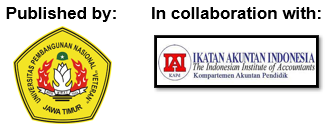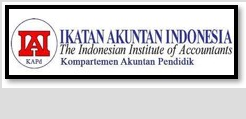Financial Literacy, Religiosity, and MSME Compliance with Sharia Financing: Does Mental Accounting Matter?
DOI:
https://doi.org/10.33005/jasf.v8i1.539Keywords:
Islamic Financial Literacy, Mental Accounting, MSMEs, Religiosity, Sharia Financing, Islamic FinanceAbstract
Purpose: This study examines the effect of Sharia financial literacy and religiosity on micro, small, and medium enterprises’ (MSMEs) compliance with Sharia financing contracts. In particular, it explores the mediating role of mental accounting in shaping contract adherence.
Method: The research employed a quantitative survey design with 100 MSMEs under Perumda Pasar Jaya Jakarta that had participated in Sharia financing for at least one year. Data were collected through structured questionnaires and complemented with qualitative interviews. Structural Equation Modeling– Partial Least Squares (SEM-PLS) was applied to test direct and mediating effects.
Findings: The results demonstrate that both Sharia financial literacy and religiosity exert positive and significant effects on MSMEs’ compliance with Sharia financing contracts. However, the mediation analysis reveals that mental accounting does not significantly mediate these relationships, suggesting that while entrepreneurs understand and value Sharia principles, limited financial buffers and urgent liquidity needs prevent them from consistently applying structured accounting practices. Qualitative evidence confirms that many MSMEs mix business and personal funds, rely on fluctuating cash flow, and occasionally delay repayment despite strong religious motivation.
Novelty/Value: Unlike in conventional finance, where mental accounting is often framed as a cognitive bias, in Islamic finance, it can function as a constructive form of self-control. By separating accounts for obligatory payments, including zakah and debt repayment, MSMEs with relatively high religiosity treat financial discipline as part of their religious duty. At the same time, Islamic financing practices grounded in ukhuwah and maslahah provide flexibility when liquidity constraints occur, making mental accounting a unique and contextually embedded mechanism for SMEs.
Downloads
References
Abdallah, W., Harraf, A., Ghura, H., & Abrar, M. (2024). Financial literacy and small and medium enterprises performance: the moderating role of financial access. Journal of Financial Reporting and Accounting. https://doi.org/https://doi.org/10.1108/JFRA-06-2024-0337
Abror, A., Patrisia, D., Engriani, Y., Idris, I., & Dastgir, S. (2021). Islamic bank trust: the roles of religiosity, perceived value, and satisfaction. Asia Pacific Journal of Marketing and Logistics, 34(2), 368–384. https://doi.org/10.1108/APJML-10-2020-0715
Adiputra, I. G., Bangun, N. A., & Graceilla, B. (2024). The Influence of Financial Socialization, Overconfidence and Mental Accounting on Investment Decisions. Jurnal Manajemen, 28(1), 200–221. Jurnal Manajemen, 28(1), 200–221. https://doi.org/https://doi.org/10.24912/jm.v28i1.1792
Aisyah, E. N., Pratikto, H., Wardoyo, C., Nurika, & Restuningdiah. (2024). The right literacy on the right performance: Does Islamic financial literacy affect business performance through Islamic financial inclusion? Journal of Social Economics Research, 11(3), 275–289. https://doi.org/10.18488/35.v11i3.3766
Aji, H. M., Husin, M., & Othman, A. K. (2024). Religious-based ethics and buy-now-pay-later re-usage intention among Muslim consumers in Indonesia and Malaysia: a commitment-trust theory perspective. Cogent Business & Management, 11(1). https://doi.org/10.1080/23311975.2024.2363441
Ajzen, I. (1991). The Theory of Planned Behavior. Organizational Behavior and Human Decision Process, 50(2), 179–211. https://doi.org/10.1016/0749-5978(91)90020-T
Ajzen, Icek, & Kruglanski, A. W. (2019). Reasoned Action in the Service of Goal Pursuit. 126(5), 774–786. https://people.umass.edu/aizen/pubs/TRGP.pdf
Al-Zaqeba, M. A. A. (2022). Extension of The TPB in Tax Compliance Behavior: The Role of Moral Intensity and Customs Tax. International Journal of Scientific & Technology Research, 9(4). https://ssrn.com/abstract=3614313
Alfi, C. F., Norzehan, S., & Yusuf, S. (2022). Religiosity and Saving Behavior: A Preliminary Investigation Among Muslim. Journal of Islamic Monetary Economics and Finance, 8(1), 25–48. https://doi.org/https://doi.org/10.21098/jimf.v8i1.1440
Amissah, E., & Świerczyńska, K. (2021). Is Religion a Determinant of Financial Development? International Advances in Economic Research, 27(December), 233–247. https://doi.org/10.1007/s11294-021-09835-2
Andarsari, P. R., & Ningtyas, M. N. (2019). The Role of Financial Literacy on Financial Behavior. Journal of Accounting and Business Education, 4(1), 24–33. https://doi.org/http://dx.doi.org/10.26675/jabe.v4i1.8524
Antonio, M. S., Laela, S. F., Mukhlas, D., & Ghifari, A. (2020). Optimizing Zakat Collection in the Digital Era: Muzakki’s Perception. Jurnal Dinamika Akuntansi dan Bisnis, 7(2), 235–254. https://doi.org/10.24815/jdab.v7i2.16597
Asniyati, A., & Yaya, R. (2020). Analisis Pengaruh Financial Literacy, Religiusitas, Mental Accounting, dan Norma Subyektif Terhadap Minat Dosen Fakultas Ekonomi Menggunakan Kartu Kredit Syariah. Reviu Akuntansi Dan Bisnis Indonesia, 4(2), 1–14. https://doi.org/10.18196/rabin.v4i2.10706
Bakar, A., Isa, M. Y., Ahmad, N. H., Maamor, S., Ahmad, Z., Azma, N., & Bakar, A. (2024). The Role of Islamic Financial Literacy from the Perspective of Maqasid Shariah: A Case Study of Community of Naka in Kedah. International Journal of Islamic Business, 9(2), 26–42. https://doi.org/https://doi.org/10.32890/ijib2024.9.2.3
Budiyanto, A., Mujib, A., Arif, M. N. R. Al, & Prasetyowa, R. A. (2024). Factors affecting financial well-being : the mediating role of financial behavior towards religiosity and anti-consumption lifestyle – evidence from Indonesia. Investment Management and Financial Innovations, 21(3), 187–198. https://doi.org/10.21511/imfi.21(3).2024.16
Carlos, J., & Bernardes, H. (2025). The Potential of Partial Least Squares Structural Equation Modeling (PLS-SEM) with a Formative Approach in Accounting Research. Journal of Education and Research in Accounting Periódico, (19), 1–9. http://dx.doi.org/10.17524/repec.v19.e3679 |
Cathcart, L., Dufour, A., Rossi, L., & Varotto, S. (2020). The differential impact of leverage on the default risk of small and large firms. Journal of Corporate Finance, 60(101541). https://doi.org/https://doi.org/10.1016/j.jcorpfin.2019.101541
Chen, H., Huang, H. H., Lobo, G., & Wang, C. (2014). Religiosity and the Cost of Debt Religiosity and the Cost of Debt Abstract. https://ssrn.com/abstract=2378052
Coordinating Ministry for Economic Affairs of the Republic of Indonesia. (2025). Pemerintah Dorong UMKM Naik Kelas, Tingkatkan Kontribusi terhadap Ekspor Indonesia. https://www.ekon.go.id/publikasi/detail/6152/pemerintah-dorong-umkm-naik-kelas-tingkatkan-kontribusi-terhadap-ekspor-indonesia
Djemaa, H. (2018). Global Journal of Business, Economics and Management: Current Issues Islamic financing options for SMEs — role of Islamic banks. Global Journal of Business, Economics and Management, 8(3), 109–120. https://doi.org/10.18844/gjbem.v8i3.3625
Fakhrunnas, F., & Ramly, Z. (2017). Board of directors and risk-taking behavior of Islamic banks in South East Asia. Tazkia Islamic Finance and Business Review, 10.2(September), 162–177. https://tifbr-tazkia.org/index.php/TIFBR/article/view/107/111
Finney, J. M. (1978). A Theory of Religious Commitment. Sociological Analysis, 39(1), 19–35. https://doi.org/https://doi.org/10.2307/3710160
Ghozali, I., & Latan, H. (2015). Partial Least Squares Konsep, Metode dan Aplikasi Menggunakan Program WARPPLS 4.0. Badan Penerbit Universitas Diponegoro.
Hair, J. F., Hult, G. T. M., & Ringle, C. M. (2017). A Primer on Partial Least Squares Structural Equation Modeling (PLS-SEM). Sage Publications.
Hanwen, C., He, H. H., Lobo, G. J., & Chong, W. (2016). Religiosity and the cost of debt. Journal of Banking & Finance, 70, 70–85. https://doi.org/https://doi.org/10.1016/j.jbankfin.2016.06.005
Hasan, Z. (2016). Risk-Sharing: The Sole Basis of Islamic Finance? Time for a Serious Rethink. JKAU: Islamic Econ, 29(2), 23–36. https://www.kau.edu.sa/Files/320/Researches/70078_43053.pdf
Hikmah, L., & Oktaviana, U. K. (2019). Pengaruh Peran Dewan Pengawas Syariah dan Komite Audit terhadap Kepatuhan pada Prinsip Syariah. El Muhasaba, 10(2), 124–140. https://doi.org/https://doi.org/10.18860/em.v10i2.6588
Irfani, A. S., Aryani, F., Mukri, C., & Fujianti, L. (2017). Analysis of Religiosity and Responsibility of SMEs Loan Repayment. Journal of Business and Management, 19(9), 49–58. https://doi.org/10.9790/487X-1909084958
Javareshk, M. B. (2024). The Psychology of Mental Accounting [University of Leicester]. https://doi.org/https://doi.org/10.25392/leicester.data.27283875.v1
Kaya, O. (2024). The impact of late payments on SMEs’ access to finance: Evidence from credit rationing and loan terms. Economic Modelling, 141(106896.). https://doi.org/https://doi.org/10.1016/j.econmod.2024.106896
Kingshott, R. P. J., Chung, H. F. L., Putranta, M. P., Sharma, P., & Sima, H. (2021). Religiosity and psychological contracts in Asian B2B service relationships. Industrial Marketing Management, 98(October), 138–148. https://doi.org/https://doi.org/10.1016/j.indmarman.2021.07.010
Kumar, P., & Sumalatha, B. S. (2024). Repercussions of Reliance on Informal Sources of Finance : A Study of Tribal Communities in Kerala. The International Journal of Community and Social Development, 6(1), 56–76. https://doi.org/10.1177/25166026241228366
Lukiyanto, K., & Wijayaningtyas, M. (2020). Heliyon Gotong Royong as social capital to overcome micro and small enterprises’ capital difficulties. Heliyon, 6(9), e04879. https://doi.org/10.1016/j.heliyon.2020.e04879
Mahmoud, M. A., Umar, U. H., Danlami, M. R., & Bilyaminu, M. (2025). An analysis of Islamic financing access in Nigeria: perspectives of MSME owners. International Journal of Islamic and Middle Eastern Finance and Management, 18(1), 49–67. https://doi.org/https://doi.org/10.1108/IMEFM-02-2024-0072
Mahudin, N. D. M., Noor, N. M., Dzulkifli, M. A., & Janon, N. S. (2016). Religiosity among Muslims: A Scale Development and Validation, Religiusitas pada Muslim: Pengembangan Skala dan Validasi Studi. Makara Human Behavior Studies in Asia Volume, 20(2), 109–120. https://doi.org/10.7454/mssh.v20i2.3492
Martins, M., Alexandre, D. S., Prim, L., & Birou, L. (2023). With major risks comes great resilience: the COVID‑19 effect on SMEs in a developing country. Operations Management Research, 1043–1055. https://doi.org/10.1007/s12063-023-00362-3
Masrizal, Sukmana, R., & Trianto, B. (2025). The effect of Islamic financial literacy on business performance with emphasis on the role of Islamic financial inclusion: case study in Indonesia. Journal of Islamic Marketing, 16(1), 166–192. https://doi.org/https://doi.org/10.1108/JIMA-07-2022-0197
Mohd, S., Faizal, J., N., & Muyop, N. A. (2025). Investigating spending behaviour using a mental accounting approach. Asian Economic and Financial Review, 15(2), 241–255. https://doi.org/10.55493/5002.v15i2.5310
Mpofu, O., & Sibindi, A. B. (2022). Informal Finance: A Boon or Bane for African SMEs? Journal of Risk and Financial Management, 15(270). https://doi.org///doi.org/10.3390/jrfm15060270
Muninggar, P., Azka, M. S. T., Haq, F., & Febriyanto, A. (2025). The Role of Islamic Financial Literacy in Shaping Economic Behavior: Evidence from Generation Z. Diponegoro Journal of Economics, 14(2), 81–97. https://doi.org/https://doi.org/10.14710/djoe.48925
Nazir, M., & Saqib, S. E. (2024). Religiosity-based behavioral study, Islamic finance users’ approach and selection standard: empirical evidence from Pakistan. Journal of Islamic Accounting and Business Research. https://doi.org/https://doi.org/10.1108/JIABR-02-2023-0047
Nicholson, D. (2024). Why Business Owners Should Watch Out for Mental Accounting Bias. https://www.certaintynews.com/article/why-business-owners-should-watch-out-for-mental-accounting-bias
Nie, L., & Song, H. (2025). Tourism Spending in Response to Stimulus Checks: Insights from Mental Accounting. Journal of Hospitality & Tourism Research, 49(7), 1332–1347. https://doi.org/https://doi.org/10.1177/10963480251338215
Puspita, M. E., & Wardani, B. K. (2022). Mental Accounting and Business Decision-Making within SMEs: A Covid-19 Pandemic Phenomenon. JASF: Journal of Accounting and Strategic Finance, 5(1), 151–178. https://doi.org/10.33005/jasf.v5i1.228
Rahmawati, I. D., Komalasari, D., Dewi, S. R., Saraswati, A. P., & Lakadjo, F. N. (2023). Meningkatkan Keputusan Berinvestasi Masyarakat Sidoarjo Melalui Knowledge Management dan pengaruh variabel Financial Literacy, Religiusitas serta Mental Accounting. Owner: Riset & Jurnal Akuntansi, 7(4), 3447–3460. https://doi.org/https://doi.org/10.33395/owner.v7i4.1801
Rohmania, A. S., & Sholihah, E. (2023). Developing Islamic financial literacy in the financial well-being of MSMEs: The improving Islamic financial behavior towards moderating effect of e-payment usage. Journal of Islamic Economics Lariba, 9(1), 293–310. https://doi.org/10.20885/jielariba.vol9.iss2.art2
Saifurrahman, A., & Kassim, S. (2021). Islamic Financial Literacy for Indonesian MSMEs during COVID-19 Pandemic: Issues and Importance. Journal of Islamic Finance, 10(1), 45–59. https://doi.org/10.31436/jif.v10i.526
Santoso, A., Nurhidayati, S., & Pratito, D. W. (2024). Relationship Between Perceived Control Behavior, Intention, Facility, and Behavior of Debt Return. Indonesian Journal of Business and Entrepreneurship, 10(2), 389–399. https://doi.org/http://doi.org/10.17358/IJBE.10.2.389
Shah, M. U. D., Khan, I. U., Khan, A., & Khan, K. D. (2025). Payment Behavior Dynamics Using Mental Accounting Theory: The Moderating Effect of Self-Control. South Asian Journal of Management Sciences, 18(2), 181–200. https://doi.org/10.21621/sajms.2024182.05
Silva, E. M., Moreira, R. de L., & Maria, B. P. (2023). Mental Accounting and Decision Making: A Systematic Literature Review. Journal of Behavioral and Experimental Economics, 107(102092). https://doi.org/https://doi.org/10.1016/j.socec.2023.102092
Sipon, S., Othman, K., Ghani, Z. A., & Radzi, H. M. (2014). The Impact of Religiosity on Financial Debt and Debt Stress. Procedia - Social and Behavioral Sciences, 300 – 306. https://doi.org/10.1016/j.sbspro.2014.04.424
Siregar, M. R., & Umuri, K. (2025). Analysis of Sharia Financial Literacy, Self-Control, and Deliberative Thinking on the Financial Behavior of MSMEs in Banda Aceh City. Global Journal of Islamic Banking and Finance, 7(2), 215–230. https://jurnal.ar-raniry.ac.id/index.php/jihbiz/article/view/31633
Tambunan, E. C., Enuh, K., & Tamba, N. (2022) Capital Access for Micro Small Medium Enterprises, Jurnal Ekonomi dan Perbankan Syariah, 10(2), 148–158. https://doi.org/10.46899/jeps.v10i2.375
Thaler, R. H. (1999). Mental accounting matters. Journal of Behavioral Decision Making, 12(3), 183–206. https://doi.org/https://doi.org/10.1002/(SICI)1099-0771(199909)12:3<183::AID-BDM318>3.0.CO;2-F
Vaghera, L., & Mashekwa, M. (2025). Afropolitan Journals Assessing Bank-Specific Challenges to SMEs Financing: Evidence from Commercial Banks in Lusaka. Afrikan Journal of Management and Business Research, 19(1), 91–109. https://doi.org/https://doi.org/10.62154/ajmbr.2025.019.01014
Wijaya, I. F., Moro, A., & Belghitar, Y. (2024). Does religiosity affect financing activity? Evidence from Indonesia. Business Ethics, the Environment & Responsibility, 32, 670–697. https://doi.org/10.1111/beer.12498
World Economic Forum. (2023). Europe’s small businesses proved resilient to COVID-19 pandemic disruption. Here’s what that means for SMEs. https://www.weforum.org/stories/2023/01/europe-smes-business-resilience-covid-19/














